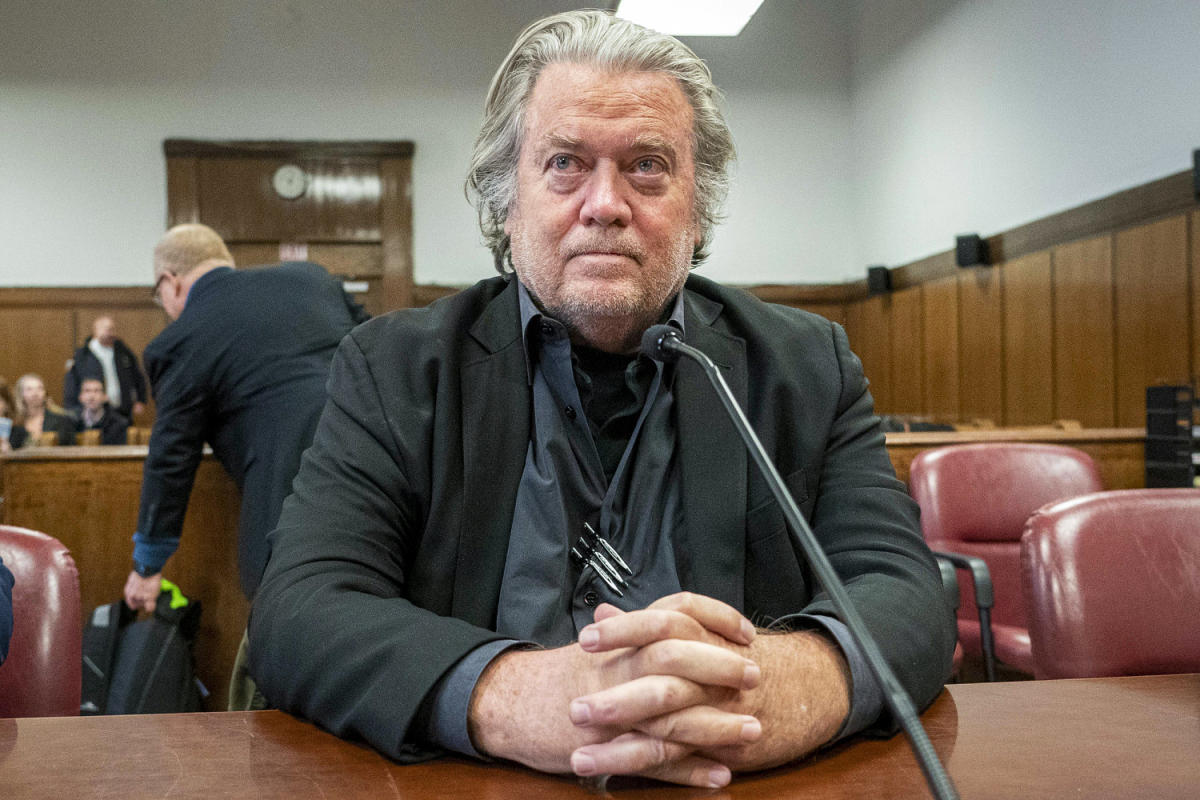Nearly two years after Steve Bannon was found guilty on two counts of contempt of Congress, the right-wing operative/podcaster hoped an appeals court would undo what a jury already did. As my MSNBC colleague Clarissa-Jan Lim explained, that was wishful thinking.
It was not a close call: The three-judge panel, which included a Trump appointee, was unanimous and categorical in its ruling.
What’s more, this adds to Bannon’s larger list of troubles: The far-right podcaster is also slated to stand trial in New York City in September on charges related to his role in the “We Build the Wall” operation. In that case, Bannon is accused of helping defraud donors. (Coincidentally, Judge Juan Merchan, who is presiding over Donald Trump’s hush money trial, is overseeing Bannon’s other case, too.)
Bannon also faced federal criminal charged four years ago, though he received a pardon from Trump on the former president’s last day in office.
As for today’s case, let’s revisit our earlier coverage and review how we arrived at this point.
The one thing everyone involved in the process can agree on is that Bannon has important insights related to the Jan. 6 attack on the U.S. Capitol. He was in communications with Trump in the runup to the insurrectionist riot, and he reportedly told the outgoing president, “[I]t’s time to kill the Biden presidency in the crib.”
The day before the attack, Bannon seemed to know quite a bit about what was likely to happen, telling his podcast listeners, “All hell is going to break loose tomorrow. Just understand this: All hell is going to break loose tomorrow…. [A]ll I can say is: Strap in. You have made this happen, and tomorrow it’s game day.”
With this in mind, it hardly came as a surprise when the bipartisan House committee investigating the attack issued subpoenas in September 2021, seeking information from key Trump insiders — and Bannon was at the top of the list.
When he refused to comply in any way, the House approved a resolution finding the GOP operative in contempt of Congress. As part of the same process, the Democratic-led chamber referred the matter to the Justice Department for possible criminal prosecution, and in November 2021, Bannon was indicted by a federal grand jury, charged with one count of contempt and another involving his refusal to produce documents, despite a congressional subpoena.
The criminal trial didn’t go especially well for the defendant: Bannon’s defense team called no witnesses, and the accused never took the stand. The jury only deliberated for about three hours before finding him guilty.
A few months later, a federal judge — who was also appointed by Trump — sentenced Bannon to four months behind bars, though the jurist said he could remain free while the appeals process continued.
All of which led to today’s ruling, which wasn’t the outcome the podcaster was hoping for.
So what happens now? The defendant’s options have narrowed considerably: As Clarissa-Jan’s report added, Bannon “has seven days to ask the full D.C. Circuit to hear his appeal or take his case to the Supreme Court.” There is no reason to expect either outcome to offer him the relief he’s looking for.
What’s more, neither option is likely to extend the process long enough to make another Trump pardon a realistic possibility.
With this in mind, Joyce Vance, a former federal prosecutor and an MSNBC legal analyst, concluded this morning, “Bannon is going to prison.”
This post updates our related earlier coverage.
This article was originally published on MSNBC.com

Leave a Reply